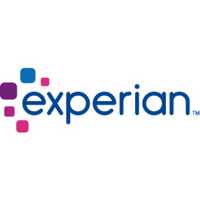How employers can help when income verification fails employees
When employees struggle to prove income, they face higher costs and missed opportunities.
HR leaders can unlock fairer access – empowering employees beyond advice and wellbeing benefits.
This is critical as economic pressures persist, impacting not just lower earners but also middle- and high-income employees in key life moments.
Hidden financial barriers
Economic challenges are evolving, but their impact remains significant.
Rising costs – from energy bills to mortgage or rental payments – are creating financial strain across all income levels, affecting both personal well-being and access to key life opportunities.
One hidden barrier employees face is proving their income.
Outdated verification methods make it harder to access better financial products, resulting in missed opportunities, higher costs, or rejection – even for those who should qualify.
This challenge takes two forms:
- Credit invisibility: Employees new to the country or workforce, with limited credit histories, struggle to provide evidence lenders need, making them “invisible” in the financial system.
- Income underestimation: Even middle- and high-income earners – often long-term employees or homeowners – face barriers due to incomplete or inaccurate assessments.
Recent Experian research highlights the scale of the problem:
- 10% of UK employees struggle to verify income or employment, due to invisibility
- 1 in 4 credit-seekers may have been blocked by income verification issues
- A third of applicants walked away from credit offers due to uncompetitive terms caused by inaccurate validation.
Beyond these barriers, the process itself is cumbersome.
85% of employees find income verification burdensome, with many relying on manual methods. Unsurprisingly, 78% prefer digital solutions, rising to 89% for those over 45.
How employers can help
HR leaders and employers can make a difference. By connecting payroll to Experian’s Work Report, employees can consent to securely share verified income or employment data digitally. As a result, they can gain better outcomes.
And, with the average employee needing to share this information at least once a year – the benefits can be wide reaching.
By addressing both credit invisibility and income underestimation, employers can enable fairer, faster outcomes for all. It’s redefining how financial inclusion is achieved.
You can contact Experian if you want to know if you are already connected, or the impact you can have on your organisation through connecting.
Supplied by REBA Associate Member, Experian
No one else can help a business quite like we can We unlock the opportunities that power your business into the future.








